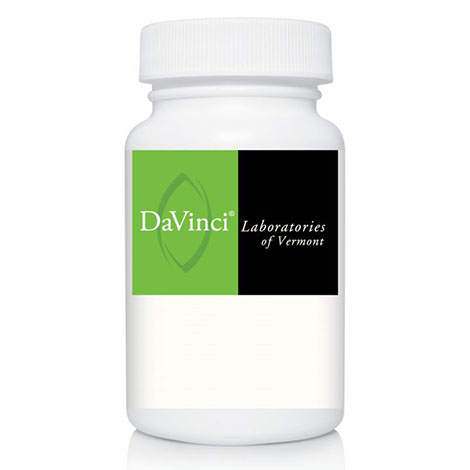Discover the Trick to Food Digestion and Resistance With Intestine Wellness Assistance

Recognizing Digestive Tract Wellness
Understanding digestive tract health is vital for overall wellness, as it plays a significant duty in food digestion, immunity, and even psychological health and wellness. The intestine, making up the gastrointestinal system, is accountable for damaging down food, taking in nutrients, and expelling waste. A balanced intestine environment makes sure reliable food digestion, permitting the body to use nutrients successfully.
Moreover, intestine health and wellness considerably affects the immune system. The intestine houses a substantial section of the body's immune cells, and a healthy intestine can assist repel pathogens and minimize swelling. Disturbances in gut health can cause an overactive immune reaction, potentially adding to autoimmune conditions and allergic reactions.
In addition, the digestive tract is usually referred to as the "second mind" as a result of the gut-brain axis, an intricate interaction network connecting the mind and the gut. This link influences state of mind, cognition, and emotional health. Issues such as dysbiosis, characterized by a discrepancy in intestine microorganisms, have actually been related to psychological wellness conditions, including anxiousness and anxiety.
The Digestive Tract Microbiome Explained
The digestive tract microbiome, a varied community of bacteria residing in the gastrointestinal system, plays an essential role in maintaining digestive system health and general health. Making up trillions of bacteria, viruses, fungi, and other germs, this complicated community aids in the food digestion of food, the synthesis of essential nutrients, and the policy of metabolic procedures.
Each individual's digestive tract microbiome is one-of-a-kind, influenced by factors such as diet plan, way of living, genetics, and environmental direct exposures. A balanced microbiome sustains optimal food digestion by breaking down complex carbohydrates, generating short-chain fatty acids, and helping with the absorption of nutrients. Conversely, an imbalance, often described as dysbiosis, can result in digestive disorders, including short-tempered digestive tract disorder (IBS) and inflammatory bowel condition (IBD)
Study has shown that a diverse microbiome is related to better wellness results, emphasizing the importance of nutritional choices in supporting these microbes. Foods rich in fiber, probiotics, and prebiotics, such as fruits, vegetables, and fermented products, can advertise a healthy and balanced microbiome. Comprehending the gut microbiome is important for establishing targeted interventions targeted at improving digestive health and avoiding gastrointestinal diseases.

Connection In Between Food Digestion and Resistance
A robust connection exists in between food digestion and immunity, highlighting the critical duty of the gut in preserving total health. The stomach system is home to trillions of bacteria that develop the digestive tract microbiome, which significantly influences both immune feedbacks and digestive processes. This complex environment aids in breaking down food, soaking up nutrients, Our site and offering vital metabolites that sustain immune feature.
When digestion is reliable, the digestive tract barrier stays intact, stopping hazardous microorganisms from entering the blood stream. About 70% of the immune system lives in the gut-associated lymphoid tissue (GALT), which connects closely with the gut microbiome.
Tips for Sustaining Digestive Tract Health And Wellness
Sustaining intestine wellness is essential for maintaining both gastrointestinal performance and a well-functioning body immune system. To promote ideal gut health and wellness, consider including a number of functional strategies into your daily routine.
First, focus on hydration. Consuming appropriate water supports food digestion and helps preserve the mucosal cellular lining of the intestines. In addition, routine exercise can improve intestine motility and advertise a diverse microbiome.
Conscious eating methods are likewise necessary. Chewing food completely and eating slowly can help food digestion and prevent overindulging, which may stress the gut. Moreover, taking care of stress and anxiety with strategies such as meditation, yoga exercise, or deep-breathing exercises can favorably affect intestine health, as stress is recognized to interrupt digestive processes.
Including prebiotics and probiotics right into your program is an additional efficient technique. While details foods will certainly be gone over later, understanding the value of these parts is crucial. Prebiotics serve as food for helpful digestive tract germs, while probiotics introduce real-time helpful microorganisms.
Finally, stay clear of too much use of prescription antibiotics, as they can disrupt the equilibrium of gut vegetation. By following these tips, you can dramatically add to the maintenance of a healthy and balanced digestive tract, which is crucial for total wellness and vitality.
Foods That Promote Digestive Tract Wellness

Fermented foods, such as yogurt, sauerkraut, kefir, and kimchi, are abundant in probiotics, which are advantageous bacteria that support gut flora and improve food digestion. These foods can assist bring back balance in the gut, especially after antibiotic usage or digestion disturbances.
In addition to fermented choices, prebiotic foods, such as garlic, onions, asparagus, and bananas, offer as nourishment for these probiotics, promoting their development and task. These soluble fibers support intestine motility and can reduce issues like irregularity.
In addition, integrating high-fiber foods, consisting of entire grains, fruits, vegetables, and beans, is crucial for preserving a healthy and balanced digestive tract. Fiber help in routine defecation and helps avoid gastrointestinal problems.
Lastly, omega-3 fatty acids discovered in fatty fish, flaxseeds, and walnuts have anti-inflammatory properties that can additionally sustain gut health. Stressing these foods in your diet plan can cause Learn More Here a durable gastrointestinal system and boosted immune function.
Final Thought
In verdict, prioritizing intestine wellness is essential for enhancing food digestion and improving resistance. A balanced gut microbiome, affected by dietary choices and lifestyle aspects, plays a critical role in nutrient absorption and inflammation decrease. Including fermented foods, prebiotics, and high-fiber options, alongside correct hydration and anxiety administration, can considerably advertise digestive tract health. By adopting these approaches, people can support general health and vigor, opening the possible advantages of a well-functioning intestinal system.
Understanding gut health and wellness is crucial for overall well-being, as it plays a considerable role in digestion, immunity, and also mental health and wellness. The gut houses a significant portion of the body's immune cells, and a healthy and balanced gut can assist fend off virus and reduce inflammation.Additionally, the digestive tract is frequently referred to as the "2nd brain" due to the gut-brain axis, an intricate communication network linking the brain and the gut.A robust connection exists between digestion and resistance, highlighting the critical duty of the digestive tract in keeping overall wellness.In final thought, focusing on gut wellness is crucial for enhancing digestion and improving immunity.